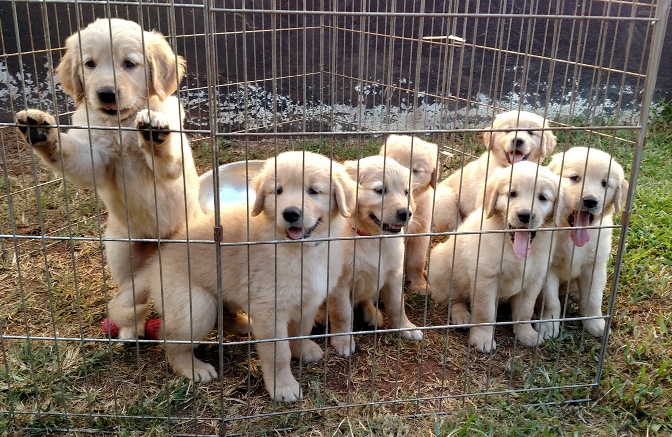Did you hear about the dog that escaped out the front door of her home and tackled a passing motorcycle on the street? As you might guess, an injury and a lawsuit followed. The dog in question was a very charming, albeit a little unpredictable yellow lab.
Unfortunately, even good dogs sometimes make bad mistakes! That’s why roughly 4.5 million dog bites happen each year in the United States, according to the CDC. Even if your dog doesn’t hurt anyone, excessive barking and other destructive habits can cause problems in the home and in the surrounding community. Raising a well-behaved dog will make life better for you, your dog and your neighbors.
Here are seven tips:
- Start young. You should start training your dog as soon as possible. While the saying “You can’t teach an old dog new tricks” may not be entirely true, it’s certainly easier to teach good habits from the beginning than to get your dog to unlearn bad habits.
- Don’t just punish your dog. If you punish your dog for bad behavior without teaching good behavior, you may end up with a very confused and anxious dog that thinks everything it does is bad. Show your dog what you want it to do, and reward your dog for good behavior. Make sure the rewards are immediate so the dog knows exactly what it did right.
- Be consistent. It’s hard to stay mad when you look into your adorable puppy’s big, sad eyes – but remember, training is about teaching your dog how to behave appropriately, which benefits both humans and canines alike. Be consistent in your training, and avoid reinforcing bad behaviors just because they’re cute. Make sure that other people in your household are also helping to provide consistent training.
- Pay attention to your dog’s needs. If your dog keeps misbehaving, it may be the sign of a problem. Try to determine whether something is making your dog anxious or annoyed. Pay attention to your dog’s body language and look for patterns of bad behavior. If something is upsetting your dog, try to remove the negative stimulus and help your dog feel more comfortable.
- Teach your dog basic commands. This will make it easier for you to control your dog, especially during stressful or distracting situations. Some good basics include “sit,” “stay” and “come.”
- Get help. You’re around your dog more than anyone else, so it’s vital that you play an active role in your dog’s training. However, you don’t have to do it alone. The right guides and training classes can make the process much easier and more enjoyable. The Hawaiian Humane Society provides resources for dog owners.
- Set your dog up for success. Don’t let your dog run free in your neighborhood or other public spaces. Some dogs have a strong predatory instinct, and even an exuberant pooch can seem threatening for small animals and children.
There’s a good reason dogs are known as a man’s best friend. We at FICOH love our dogs, and we wish you all the happiness made possible by a well-behaved canine companion!

